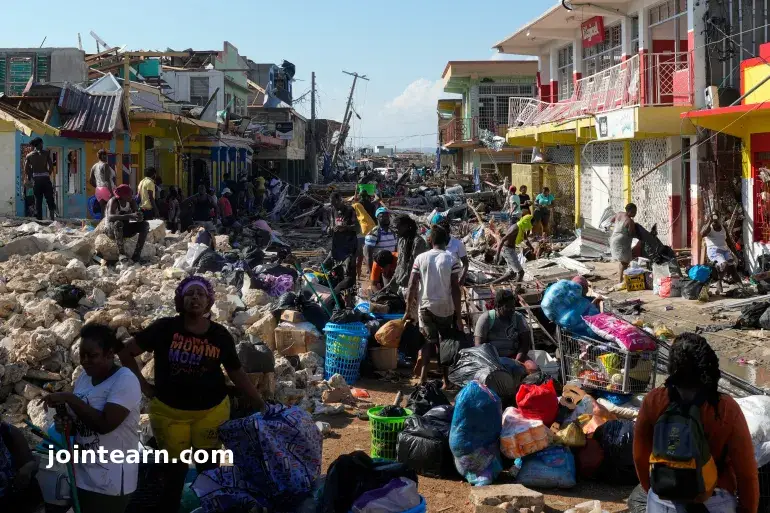
As world leaders gather on the edge of the rapidly shrinking Amazon rainforest, the COP30 climate summit in Brazil has become a platform for countries most affected by climate change to demand urgent action. From hurricanes and floods to droughts and landslides, these nations are calling for a fairer balance of responsibility between developed, high-emission countries and developing nations bearing the brunt of the crisis.
Developing Countries Demand Climate Justice
Representatives from the most climate-vulnerable regions highlighted that while they contribute least to greenhouse gas emissions, they are suffering the heaviest consequences. Haitian diplomat Smith Augustin described the devastation left by Hurricane Melissa, emphasizing that small island nations are disproportionately affected.
Kenya’s Vice President Kithure Kindiki spoke about the extreme droughts and floods plaguing East Africa, pointing to last week’s deadly landslide as evidence of worsening climate impacts. Meanwhile, Barbados Prime Minister Mia Mottley criticized global leaders for the slow rollout of the loss and damage fund set up in 2022, noting that Jamaica alone has suffered over $7 billion in damage, alongside similar crises in Cuba, Haiti, and the Bahamas.
African Union Commission Chairman Mahmoud Ali Youssouf framed the demand as a call for climate justice, not charity, highlighting the need for systemic solutions rather than temporary aid.
Calls for Greater Accountability by Developed Nations
Leaders urged the international community to hold developed nations accountable for their historical and ongoing emissions. Brazilian President Luiz Inacio Lula da Silva emphasized the need for a concrete roadmap to tackle deforestation, fossil fuel dependence, and climate financing, stressing that ambitious targets require actionable resources.
A major initiative discussed is the creation of a global carbon market, allowing countries that emit less than their targets to sell credits to those exceeding limits, incentivizing emission reductions worldwide.
Despite a $300 billion pledge by wealthy nations last year to assist poorer countries, no funds have yet been disbursed. Developing nations argue that the amount falls far short of what is needed, calling instead for $1.3 trillion in combined public and private funding to address climate-related damages.
Criticism of Major Emitters
Several leaders criticized countries that have downplayed or ignored climate science. The United States, under President Donald Trump, has been singled out for denying climate change, refusing to send an official envoy, and continuing fossil fuel expansion.
UN Secretary-General Antonio Guterres warned that world leaders face a choice: lead the fight against climate change or allow global devastation to continue. He said:
“Too many corporations are making record profits from climate devastation, with billions spent on lobbying, deceiving the public, and obstructing progress, and too many leaders remain captive to these entrenched interests.”
Guterres emphasized that while exceeding the 1.5°C warming threshold may be inevitable in the short term, what matters is how high temperatures rise and for how long. He reiterated that global emissions must halve by 2030, reach net zero by 2050, and move toward net negative in the decades following.
UNEP Report Highlights Urgency
The UN Environment Programme (UNEP) recently warned that the world is “very likely” to surpass the 1.5°C global warming limit within the next decade. The report underscores the need for urgent mitigation measures, particularly in developing countries, which face severe environmental, economic, and social consequences from climate change.
COP30 Objectives and Next Steps
Key goals of COP30 include:
- Mobilizing adequate financial support for vulnerable nations.
- Strengthening international commitments to reduce greenhouse gas emissions.
- Establishing a global carbon market for emission trading.
- Addressing loss and damage from climate-related disasters.
- Promoting climate justice and equitable resource allocation between rich and poor nations.
The summit represents a critical opportunity for global leaders to take decisive action to protect the most affected countries while reinforcing commitments under the Paris Agreement.


Leave a Reply